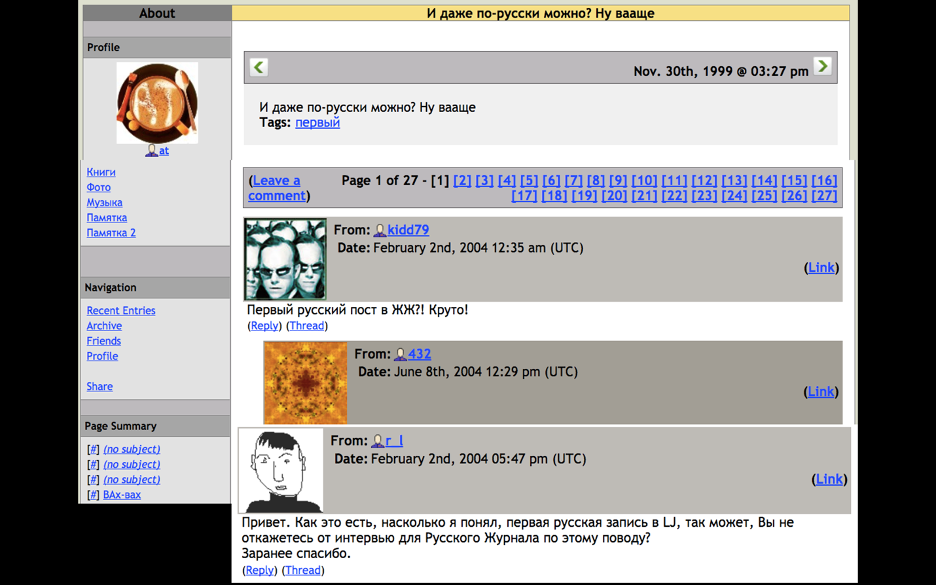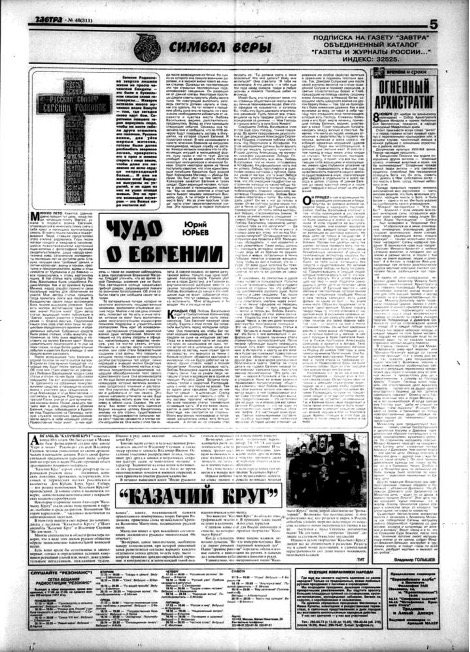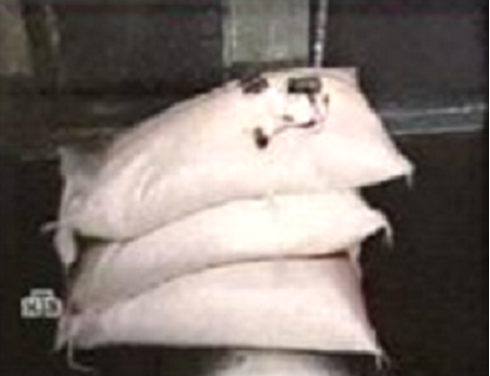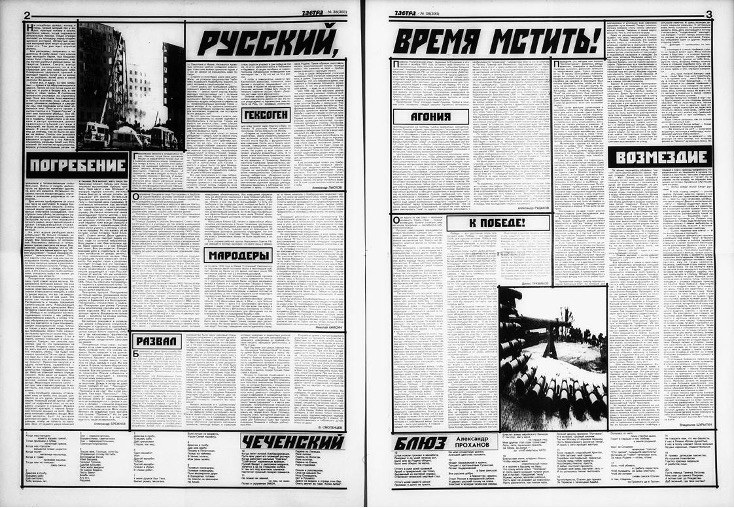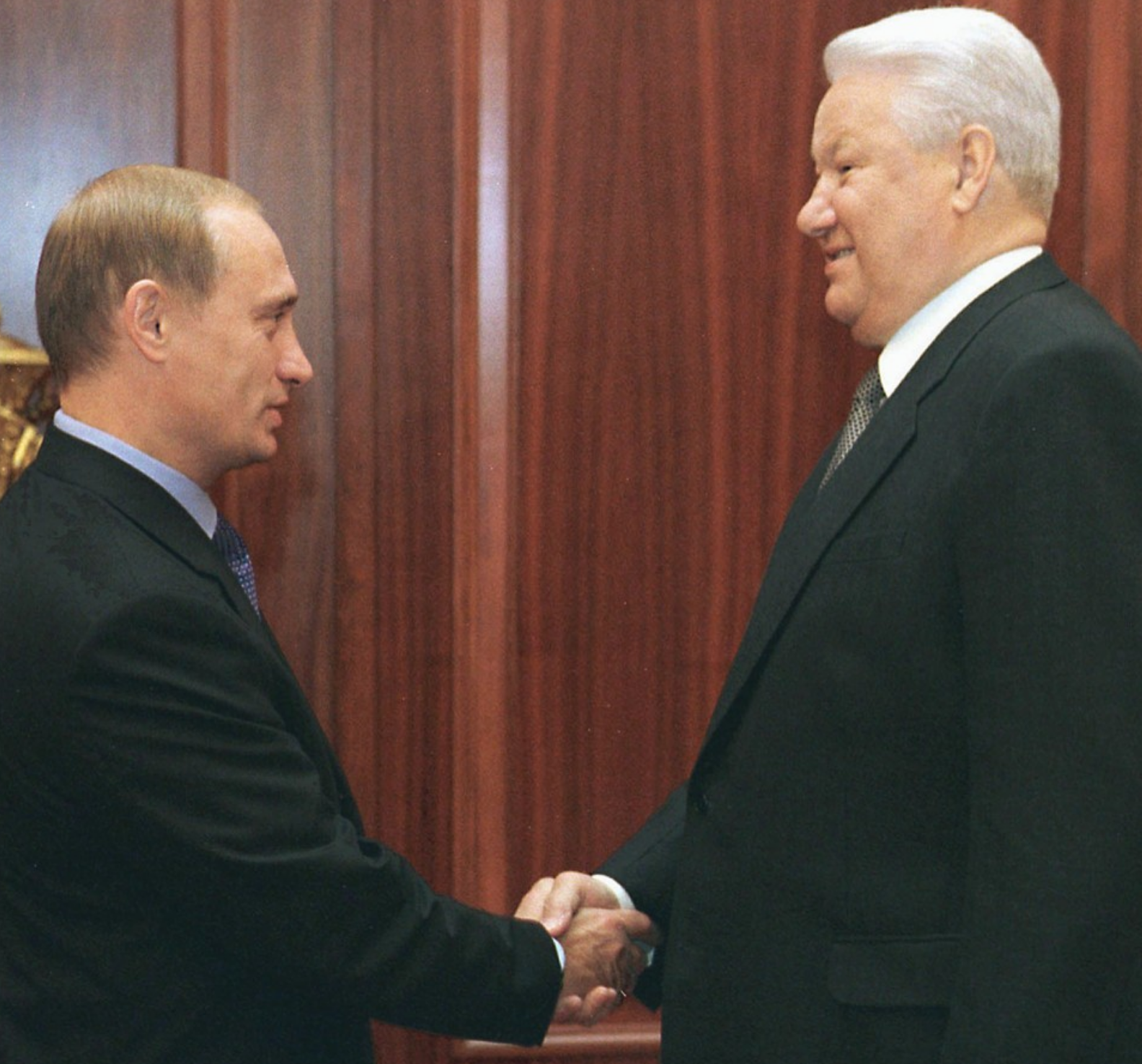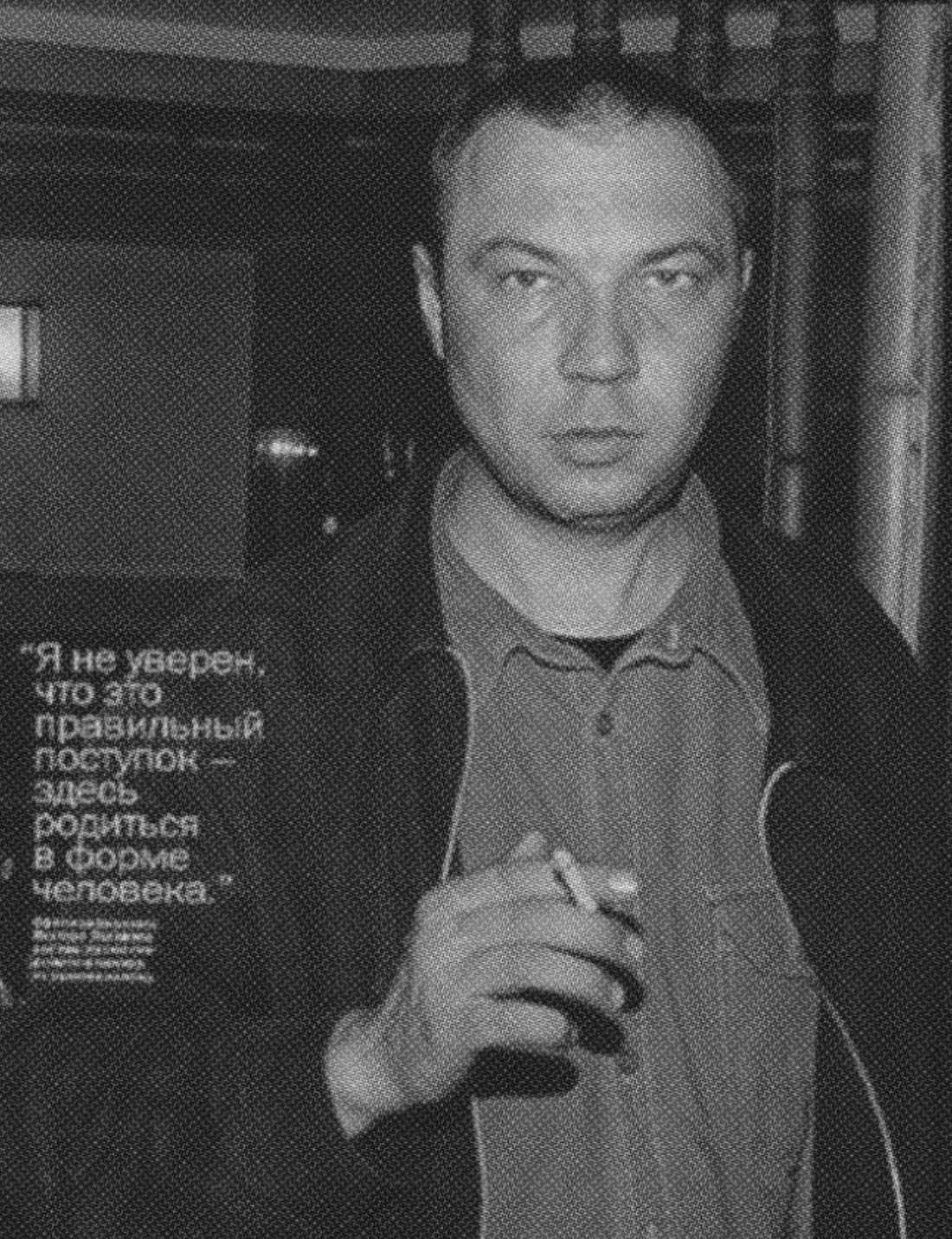Search Results
Search Terms
Results: Displaying Artifact 1 - 6 of 13 in total
Text Containing: 1999
Fields: Human Readable Date
Page: 1
First Russian-language LiveJournal Post
A post in 1999 demonstrates that LiveJournal processes Cyrillic encoding, sparking the Russian internet's most pervasive and influential early social media site. LiveJournal, soon known simply as ZhZh in Russian (for “Zhivoi zhurnal”), became a platform for poets, writers, political activists, essayists—and graphomaniacs. It launched or catalyzed several literary and political careers, and fed the budding market for conspiratorial thinking in late 1990s-era Russia.
The Miracle of Evgeny
A Russian soldier during the first Chechen War (1994-1996), Evgeny Rodionov was captured outside of the Chechen capital, Grozny, and reportedly executed for refusing to renounce his Orthodox faith. His image has since served as the inspiration for several new icons created in the post-Soviet Russian Orthodox Church.
Ryazan Sugar (Hexogen)
Three large sacks of white granules, wired to a timer set for 5:30 AM, were found in the ground floor of a Ryazan apartment building on 22 September 1999—perhaps preventing yet another apartment bombing in a series that had terrorized Russians all month. FSB chief Nikolai Patrushev later told a TV reporter that these sacks contained nothing but sugar, which were being used in a test of public vigilance.
"Russian, It's Time For Revenge!"
In the weeks leading up to the Second Chechen War, Russia’s right wing publications reminded their audiences of the humiliation of the First Chechen War, and called for—nationalist, racist, brutal—revenge.
Vladimir Putin's 1999 Vision for Russia
Just before assuming the presidency, Prime Minister Vladimir Putin published an essay that outlined his vision for Russia. He saw it as a post-industrial society that could successfully integrate into the new world order only with a strong central government.
Interview with Victor Pelevin
After the launch of Victor Pelevin’s hit novel “Generation P” in 1999, the author set out on a publicity tour in which he behaved as poorly as his own protagonist, Vavilen Tatarsky. And much like his protagonist, he proved that, in post-Soviet Russia, bad behavior sells.
